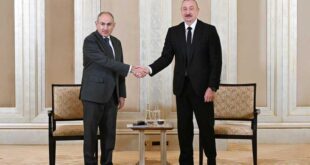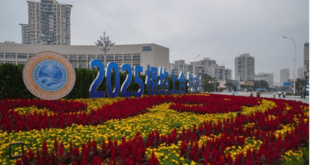Just three or four years ago, no one was talking seriously about a role for Russia in the Middle East. It is indeed amazing how Vladimir Putin, with minimum investment, has achieved all this in such a short time. He is now publicly invited by Saudi Foreign Minister Adel al-Jubeir to enter the region through the widest gate now available: Saudi Arabia. He will have an extremely important meeting with Turkish President Recep Tayyip Erdogan in August. He is considered by Iran as a close ally. And he is the guarantor of the Assad regime, and seen as a close friend in Cairo.
It is unquestionably an impressive record. But how could the Russian President accumulate all these gains in such a short period of time and with a small fraction of what George W. Bush and Dick Cheney spent on the catastrophic invasion of Iraq? And does the rising star of Putin in the Middle East show us that what we are actually seeing is the beginning of the end of the West’s “special role” in the region, which started over a century ago with the “Arab Revolution” of 1916 and the British-French colonial rule over that part of the world?
As no one could see that the invasion of Iraq in 2003, a move of sheer arrogance of power, would lead to all that, no one can yet place the current developments within a clear historic perspective. But it is interesting to see how the manifestation of power in Iraq in 2003 led to the advance of one strategic adversary of the West, Vladimir Putin, to moving into what had remained a Western-controlled region for over 100 years.
Yet, it is unfair to blame the Bush-Cheney war in Iraq as the sole culprit. For even with an admission that the war was a lively expression of the “perfect blunder”, this does not mean that it should have been left, as the blunder it indeed was, to unfold the way that it did. Bush tried to contain the catastrophic results through the infamous “surge”. Obama just left the process to unfold, bringing about its worst case scenario, which is what we see now.
Turning back to Putin, we see the Russian president facing a win-win situation. Invited by the two powers of the region, Saudi Arabia and Iran, moving to exploit the situation in Turkey in his favor, friends with Israel, Egypt, Assad, the GCC, and everyone, he sits in his temple in the Kremlin while everyone offers sacrifices under his feet.
All the while, the Russian President is presiding over a weak economy, with shaky political power and no moral discourse or qualitative content. It is indeed an amazing return for an incredibly small investment.
But it all depends on how President Putin drives the current moment. Options are opened to him like never before.
In the case of Saudi Arabia, Jubeir told Politico that the Russians are welcomed. “We are ready to give Russia a stake in the Middle East that will make Russia a force stronger than the Soviet Union. We disagree on Syria, not so much on the end game but how to get there,” the Foreign Minister said.
In the case of Iran, Russia delivered an S-300 surface-to-air missile defense system earlier this year. The two countries coordinate their regional policies closely despite the fact that those policies are not always identical. At the end of last June, Secretary of Iran’s Supreme National Security Council (SNSC) Ali Shamkhani arrived in Moscow to hold talks with senior Russian officials on major regional developments.
The reason behind Jubeir’s public invitation to Putin may be found in the perception that Russian oil companies are putting pressure on the Kremlin to modify its Middle East policy to accommodate the Saudis in order to reach a deal on oil production and prices. It also may be explained by unfulfilled Saudi expectations that the oil glut would have ended already.
But regardless of the Saudi position, there are differences between Tehran and Moscow regarding the way to move forward in Syria. Tehran supports and trusts Assad and no one else in Syria. Moscow thinks in a strategic sense and attaches little concern to the future of Assad as a person. Rather, it is focused on preserving the state, the Alawis, and the Syrian army.
It is possible that while Jubeir was encouraging Russia’s oil companies to intensify their pressure on the Kremlin, he was simultaneously attempting to increase the chasm between Russia and Iran, based on reports from the ground in Syria on how Moscow’s forces and Iran’s militias move on the war front. There have been repeated instances when Russian troops, on the one hand, and Hezbollah and Iran’s Revolutionary Guard forces on the other, have criticized each other publicly.
And in the case of Turkey, according to Iranian reports, Moscow had warned Erdogan of the failed coup of mid-July. According to the reports, the Russian military intercepted coded radiograms containing information about preparations for a coup, which were then shared with the Turkish military.
This in stark contrast to accusations leveled by senior officials in the Justice and Development Party (AKP) that the US supported the coup, an allegation denied vehemently by President Obama.
The ground is prepared to develop strong Turkish-Russian relations. Turkey and the West have had mounting problems during the last couple of years. The new Turkish-Russian relations will have to solve some problems first, like Moscow’s position on the Kurds of northern Syria and Ankara’s position on Jabhat al-Nusra and other armed Islamist and jihadist groups active in that area. But common interests between the two countries far outweigh any similar obstacles.
It is not clear yet how things will evolve in the troubled region of the Middle East. But so far, one thing is clear: Vladimir Putin is the region’s rising star. He may as well send a thank-you note to the White House.
 Geostrategic Media Political Commentary, Analysis, Security, Defense
Geostrategic Media Political Commentary, Analysis, Security, Defense





